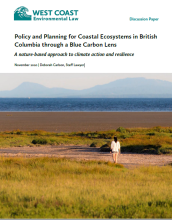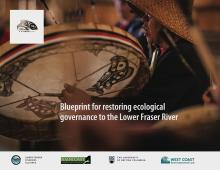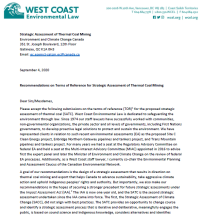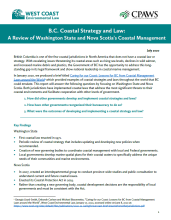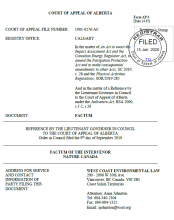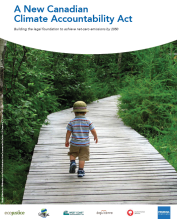Publications
Browse our recent publications, including reports, briefs, submissions to government, and other materials.
Use the search criteria to filter by topic, date, author and/or keywords.
Publication Date: November 2020
Pages: 4
Topics: Climate Accountability Legislation
Publication Date: November 2020
Pages: 44
Topics: Climate Adaptation, Blue Carbon, Nature-Based Climate Solutions, Coastal Ecosystems
Publication Date: November 2020
Pages: 81
Topics: Coastal ecosystems, BC provincial jurisdiction
Publication Date: October 2020
Pages: 10
Topics: Wild Salmon, Lower Fraser River, Indigenous Law, Ecosystem-Based Management
Publication Date: October 2020
Pages: 33
Topics: Impact Assessment Act, strategic assessment, coal
Publication Date: September 2020
Pages: 11
Topics: Impact Assessment Act, strategic assessment, coal
Publication Date: July 2020
Pages: 8
Topics: Coastal strategy, coastal protection, BC coast
Publication Date: June 2020
Pages: 47
Topics: Impact Assessment Act
Publication Date: June 2020
Pages: 44
Topics: Climate accountability, climate change, Canadian climate accountability
Publication Date: April 2020
Pages: 1
Topics: Trans Mountain pipeline, TMX legal challenges

